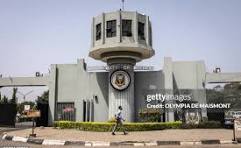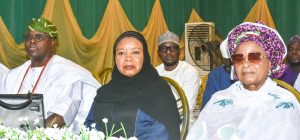SSANU begins indefinite strike October 6 over withheld salaries, N40bn allowances

The union’s National Executive Council (NEC), which held its 52nd meeting at Alvan Ikoku Federal University of Education, Owerri, lamented that the government’s actions risk plunging the university system into another avoidable industrial crisis.
In a communiqué signed by its National President, Comrade Mohammed Haruna Ibrahim, SSANU expressed deep frustration at the Federal Government’s failure to renegotiate and implement the 2009 FG/SSANU Agreement, describing the silence of the renegotiation committee as “a betrayal of trust.”
The union warned that it would have no option but to act if the government failed to honour the two-week extension earlier granted by the Joint Action Committee of SSANU and NASU.
“If this pattern of neglect continues, the Union will have no choice but to explore all lawful and appropriate avenues to compel compliance,” the communiqué read.
One of the key issues raised was the continued non-payment of two months’ withheld salaries of SSANU members who participated in the 2022 industrial action. The union described the government’s action as punitive and provocative.
“NEC strongly condemns the continued withholding of salaries of SSANU members… and urges the Federal Government to immediately release the outstanding two months’ withheld salaries as a demonstration of good faith,” the statement emphasised.
It further noted that deductions already made from previously paid arrears were yet to be remitted to pension administrators, a development it described as an attack on members’ retirement security.
“This allocation is unjust, discriminatory, and fails to acknowledge the indispensable role SSANU members play in the effective functioning of Nigerian universities,” the union declared, demanding the immediate release of the outstanding ₦40 billion balance in line with the signed Memorandum of Understanding.
“Beyond internal university concerns, SSANU painted a bleak picture of the state of the nation, citing widespread insecurity, collapsing infrastructure, and worsening poverty. It decried the recent cholera outbreak in Zamfara and other parts of the country, the Abuja–Kaduna train derailment, frequent kidnappings, banditry, and devastating floods in Adamawa, Niger, and Lagos States as evidence of government failure to protect lives and maintain critical infrastructure.
“Healthcare remains underfunded, agriculture and food security are under severe threat, and millions of Nigerians are facing acute hunger due to conflict, climate shocks, and economic instability,” the union warned.
On education, the NEC said Nigeria’s schools continue to suffer from outdated facilities and gross underfunding, insisting that “the government must urgently meet and implement global best practices in education by funding the sector adequately.”




Thanks for the breakdown — the comparisons were particularly useful.
This really cleared up confusion I had. Much appreciated!
Với giao diện mượt mà và ưu đãi hấp dẫn, MM88 là lựa chọn lý tưởng cho các tín đồ giải trí trực tuyến.
Đến với J88, bạn sẽ được trải nghiệm dịch vụ cá cược chuyên nghiệp cùng hàng ngàn sự kiện khuyến mãi độc quyền.
采用高效谷歌外推策略,快速提升网站在搜索引擎中的可见性与权重。谷歌外推
Đến với J88, bạn sẽ được trải nghiệm dịch vụ cá cược chuyên nghiệp cùng hàng ngàn sự kiện khuyến mãi độc quyền.
Tham gia cộng đồng game thủ tại Go88 để trải nghiệm các trò chơi bài, poker phổ biến nhất hiện nay.
专业构建与管理谷歌站群网络,助力品牌实现全域流量的强势增长。谷歌站群
kuwin sở hữu kho game đa dạng từ slot đến trò chơi bài đổi thưởng, mang đến cho bạn những giây phút giải trí tuyệt vời.
Đến với J88, bạn sẽ được trải nghiệm dịch vụ cá cược chuyên nghiệp cùng hàng ngàn sự kiện khuyến mãi độc quyền.
Đến với J88, bạn sẽ được trải nghiệm dịch vụ cá cược chuyên nghiệp cùng hàng ngàn sự kiện khuyến mãi độc quyền.
Khám phá thế giới giải trí trực tuyến đỉnh cao tại MM88, nơi mang đến những trải nghiệm cá cược thể thao và casino sống động.